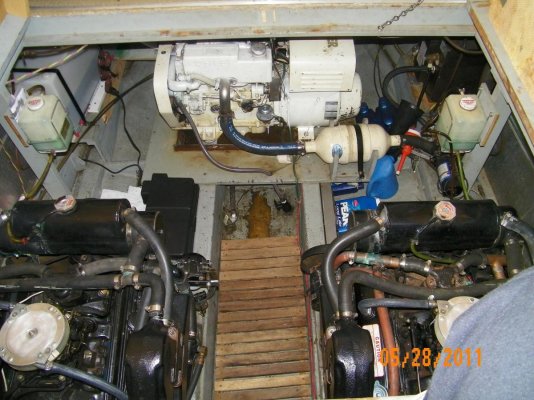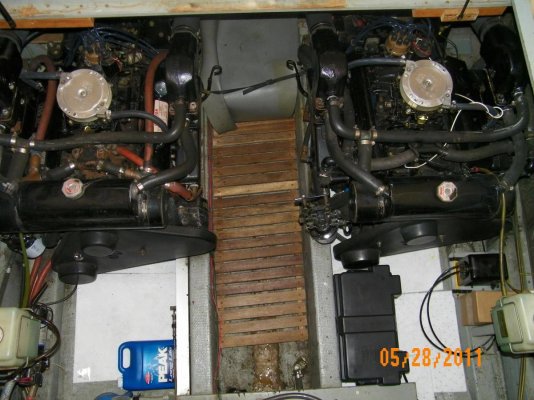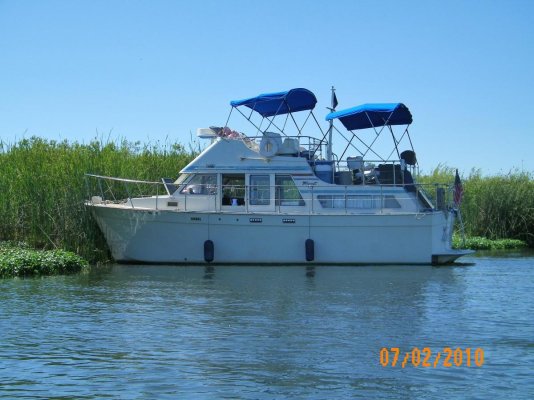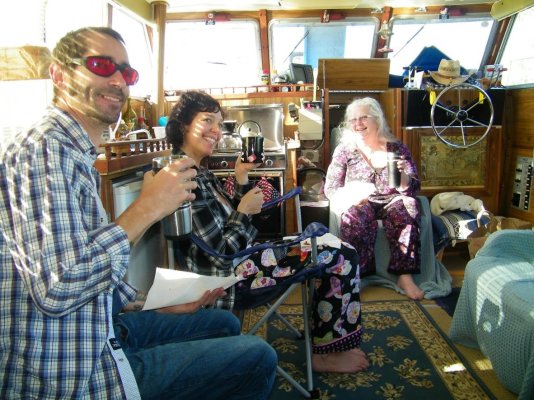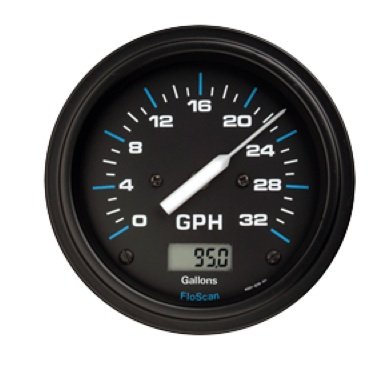Back in 50’s, 60’s, into early 70’s the percentage was way high toward gas powered pleasure craft. Back then even many small to midsized working fishers had some big old gassers in em and in Maine nearly all working Lobster Boats were at that time gas powered...
The same was true out here. Until the 60s or so (I'm guessing, I'm not positive) the typical northwest salmon troller was gas powered. One of my favorite boats in our marina, Donna, is a 36' double-ended working salmon troller built in Port Angeles in the 1940s. Her owner told me she still has her original 4-cylinder gas engine. This boat has fished SE Alaska her entire life until the last few years although her owner still keeps her up beautifully. I have no idea how often the engine has been overhauled or what kind of maintenance or repair has been needed to keep it running all these decades.
But until the 60s or thereabouts, marine diesels were big and heavy and expensive and were considered only for heavy duty working boats. The marinization of automotive diesels changed all that. The same economies of longevity, reliability, simplicity, and fuel efficiency that made them the dominant powerplant in over-the-road trucks applied to boats as well, and the marinization of those truck and agricultural engines made it economically feasible to offer the boater the same benefits the truckers and farmers were enjoying. And once that started happening, that was pretty much it for using gas engines in the upper half of the recreational boat market and the commercial market.
The safety factor is a nice benefit but I believe that with good design and conscientious operation a gas boat can be as safe as a diesel boat. I fished in a twin gas V-8 boat in Hawaii in the 70s and we sniffed the engine compartment and used the blowers and never had anything even approaching a problem. So despite the popularity of hyping safety as a big advantage of diesel I don't know that it's really that significant of a deal in reality. Lot of smaller gas powered Tollycrafts running around up here today without blowing up.
As the automotive diesels have gotten bigger and more powerful , this has benefitted the boater, too. The lobster guys who were operating gas-powered boats in the 50s and 60s can now get the same kind of speed versatility with a diesel, and have an engine that will, or should, last nearly as long as their boat and be relatively miserly with the fuel to boot. So even the performance edge that gas once had has been eclipsed by the diesel in those applications.








 ..
.. ..
.. ..
.. ..
..